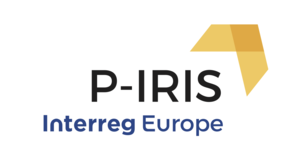

P-IRIS partners held a digital workshop on Living labs and user groups as part of rural innovation systems on 10 February 2021. At the workshop, good practices focusing on the inhabitants of rural areas and their role in innovation from Norway were presented.
Alfred Bjørlo, mayor of the Norwegian municipality of Stad presented the concept of smart communities and their experience in introducing innovations. Stad municipality was created by merging 3 previous municipalities. With the creation of a new municipality, the managing authorities developed a new approach to thinking about the future, what a municipality is and how it should function. Their goal is to gain a national position as a »Rural pioneer« and to achieve this goal the Managing Authority (MA) and the inhabitants must work as partners. In Stad municipality, they use the bottom-up approach systematically on all levels.
They believe it is important to listen to their inhabitants and their needs in order to create good solutions that work well on all levels. As a good example of the partnership between MA and its inhabitants, he highlighted the case of Nordfjord hospital. The custodian of the hospital approached the MA to find a solution to the high costs of heating and cooling in the hospital. Together they developed a system of heath pumps using fjord water to heath/cool the hospital. Today this system is used in approximately 60 larger buildings in the municipality.
Bjarne Uldal, Chief Innovation Officer at Nordic Edge Innovation Cluster, presented innovation networks and living laboratories and GNIST, a Norwegian program that introduces a methodology for launching innovation processes based on public needs. Nordic Edge is a Norwegian non-profit organization that works closely with municipalities and city administrations to promote solutions for smarter cities and communities. It is goal is to become one of Europe’s most important venues for sharing knowledge and inspiration for creators of smarter businesses, cities and societies. He also presented the case of the county of Rogaland as well as the case of Utsira Island.
Utsira Island is Norway’s smallest municipality. Due to the remoteness of the island and harsh living conditions, the municipality had problems keeping people on the island. To prevent the massive migration of its inhabitants and to use the geographical conditions, Utsira was turned into a Living Lab with a focus on energy and new industries such as fish farming.
Entrepreneurs and representatives of innovation networks from Slovenia, representatives of research and development institutions from Croatia and managing authorities from Spain also commented on the presentations with their experience in promoting innovation in rural areas.
The one thing all those presenting had in common? They all agreed that cooperation is vital for the successful implementation of innovations. Not only cooperation between municipalities and its inhabitants but also between different municipalities as there is too much focus on where the borders lie.
Video of the digital workshop